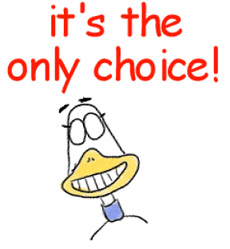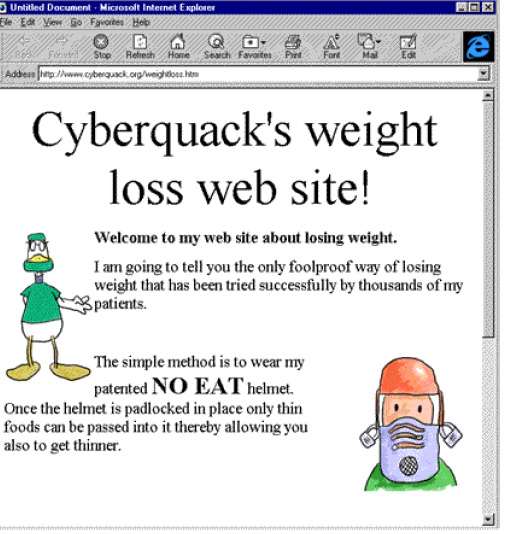 KEY STAGE THREE
KEY STAGE THREE  Information
Information Checkpoint 8:
Does the site tell you about the choices open to you?
 Some web sites provide information. Others may try to give you
advice.
Some web sites provide information. Others may try to give you
advice.
For example, a health related web site may talk about different treatments available to you or different ways you can help yourself.
In this case you need to think about how much it is actually telling you. If it only gives you one option, so that it appears that there are no other choices available to you, it may not be telling you the full story.
In most cases and situations you will have a choice. A good web site will tell you about all of the options open to you.
The information should not be biased (See checkpoint 7). If it offers advice, it should also give you some idea of what may happen to you if you follow this advice.
You have decided you need to lose weight. You look at the web site below for information on how to get thin:

After looking at the information it is clear that you can either:
1. wear the patented NO EAT helmet
2. or NOT wear the patented NO EAT helmet.
Which should you choose?
The problem with this site is that there were only two choices and to be honest, neither of them were much use.
In fact you should have been able to choose from a whole host of other ways such as:
- eating a healthy diet
- cutting out snacks between meals
- exercising more
But because the web site only told you about one way to lose weight, you may not have known about any of these others.
Copyright © www.teach-ict.com



